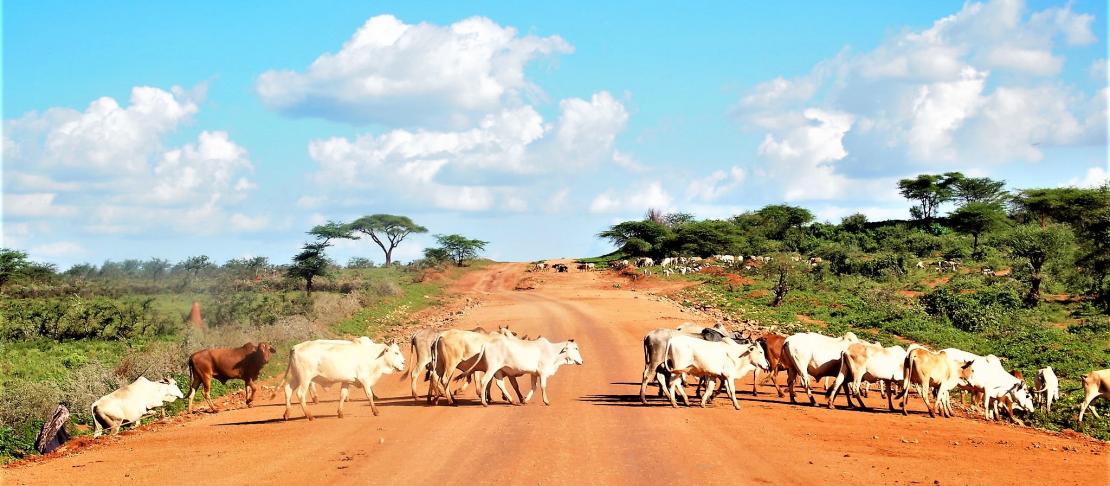Enhancing capacities for MRV of sustainable livestock actions in East Africa

Project description
The lack of practical methods for Measuring, Reporting, and Verification (MRV) greenhouse gases (GHG) as well as knowledge of adaptation and socio-economic effects of low-emission livestock development is a major barrier to investment by financial entities and a constraint on national cross-sectoral support for low-emission livestock development.
This project builds on the CCAFS project on Kenya Dairy NAMA and provides practical guidance on MRV of project investments and MRV at a national level and interlinkages between MRV systems at each level. This project also developed feasibility studies and designed a Green Climate Fund (GCF) proposal for a dairy Nationally Appropriate Mitigation Action (NAMA), including MRV and mainstreaming gender. Activities on gender include the design of private sector investments in gender inclusive extension services to increase on-farm dairy productivity and the initiation of the development of a gender strategy for the Kenya Dairy Board.
The overall objective of this project is to increase the capacities of project implementation agencies and national MRV entities for MRV of low-emission livestock development. This will help developing countries achieve their Nationally Determined Contributions (NDCs) and meet their obligations under the Paris Agreement (Article 13) and increase access to finance for low-emission livestock development. Achieving this objective will also contribute to mainstreaming low-emission livestock investments in the investment operations of financial institutions.
Activities
- Inclusive and climate smart business models in Ethiopian and Kenyan dairy value chains
- Strengthening partnerships for MRV improvement and adoption
- Targeted research for robust and practical MRV practices
- Transformative impact through regional and global knowledge dissemination
Expected outcomes
- Practical guidance on livestock MRV will support the Bio Carbon Fund Oromia Forest Landscape Project in their land restoration and avoided deforestation objectives [13,800 ha under SLM and 120,000 ha SFM].
- In Kenya, the project will engage with two large-scale World Bank investments (KCSAP and NARIGP) to integrate MRV at project level, and linkages between project and national MRV. At national level, adoption of Tier 2 approaches in national GHG inventory will support the integration of dairy sector interventions in the NDC. In Ethiopia, the project will support MRV in World Bank Livestock Sector Development Project and the BioCarbon Fund Oromia Forested Landscape Project. At the national level, support will be provided for estimating GHG effects of the Livestock Masterplan, identification of mitigation options and investments, and integration with the Climate Resilient Green Economy Strategy and NDC.
- Following adoption of Tier 2 livestock GHG quantification methodology in at least 1 country's national GHG inventory, analysis will be applied to historical and projected scenarios to inform decision-makers on the mitigation potential of alternative sector development pathways and planning for future revisions of the NDC.
- The project will develop (1) a methodological framework for assessment and development of livestock MRV systems at project and national levels (including their linkages), (2) science-based evidence on livestock MRV practices disseminated through GRA East Africa and global knowledge management programmes and CCAFS AgMRV platform, and (3) disseminate lessons learned on project-level MRV to World Bank and other relevant investors.
Gender and youth
The project continues to support Kenya Dairy Board in the development of a gender strategy. The aim of this gender strategy is to promote gender-inclusion within the organisation itself, and in the dairy industry.
Partners
This project is led by the World Agroforestry Centre (ICRAF), in collaboration with:
- Global Research Alliance on Agricultural Greenhouse Gases (GRA)
- Ministry of Agriculture, Livestock and Fisheries, Kenya (MALF)
- Unique Forestry and Land Use GmbH (UNIQUE)
- Van Hall Larenstein University of Applied Sciences (VHL)
- The World Bank
More information
For more information, please contact project leader Todd Rosenstock, ICRAF (t.rosenstock@cgiar.org).